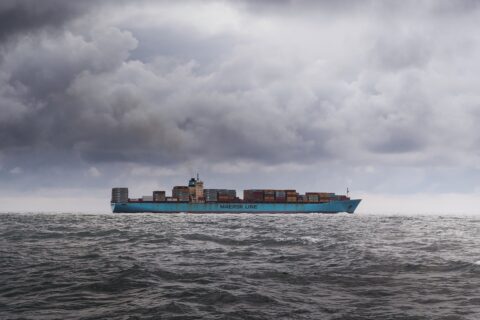If you are ready to ship your products in the global market, the next step for you is to look for a trusted logistics provider like ProConnect Integrated Logistics who has a vast reach and network across the locations you are targeting. But in order to successfully ship your freight, you need to be thoroughly prepared, as your freight forwarder or logistics company will require answers to some basic first hand questions before sharing their quotes. In this article, we take you through top 10 questions you should be prepared to answer.
Top 10 Questions A Logistics Provider Will Ask

- What is your commodity and its type?
One of the most important questions is the commodity or cargo type that you are shipping. There are various types of cargo – general, valuable, food, non-food, perishable, heavy equipment, etc. – understanding the type of commodity and communicating the same to your logistics provider is vital. This answer will help determine what kind of freight shipping and loading would be most suitable for your cargo. - What is its HS Code?
HS Code is a standard code that helps in determining and classifying your commodity. HS code consists of around 5000 commodity groups, identified by a six digit code to achieve uniform classification. This code is accepted by over 200 countries and serves as basis for their customs tariffs. Freight rates vary according to the HS code, therefore it is important to assign the right HS code classification to your goods. In case you are facing issues determining the right code, your logistics provider can help here. - What is the origin and destination country?
While obviously you know the origin and destination of your freight, it is important you know the correct names of the ports from which your goods have to be shipped. Moreover, you also need to give full address details for the pick-up and delivery of your cargo, which will help you get an accurate quote for your shipment. - What is your preferred mode of freight shipping – air, sea or land?Depending on the time you have at hand, type commodity, its volume / weight and several other factors you can choose whether you want to ship by air, sea or land. Shipping rates greatly differ for each of the modes, while your logistics partner will be able to help you here – having an answer to this will make things simpler for you, as this would impact your budget as well. Air freight is most expensive of the three modes.
- Are you shipping cartons, pallets or boxes?
Knowing and communicating how you will be shipping your goods is important to ensure all your goods are shipped from the origin to the destination. If you are shipping in cartons or boxes, you need to inform on the number of cartons or boxes and whether they will be lose or can be palletized. If you ate shipping pallets, then how many pallets need to be shipped. All of this will help your logistics provider to share an appropriate quote with you. - If cartons or boxes, what would be their size?
In addition to the number of cartons and boxes, you will also need to share the dimensions / size of the cartons. Measure the length, width and height of the cartons as well as its volume in cubic meters. - What is the weight and volume of the shipment?
Freight rates are calculated on the weight and volume of the cargo. You need to share the net weight as well as the gross weight of your cargo with your logistics provider. Net weight refers to the weight of your commodity, whereas gross weight refers to the total weight of the commodity, cartons and any packing material included. - Would your goods fill an entire container load?
Depending on the volume, weight and size of the goods, it can be determined whether your goods can fill an entire container or would you require shared space in the container – this will help determine whether FCL or LCL would be most suitable for you. Containers come in different sizes and types, most common ones being 20 feet containers and 40 feet containers. - Do you need port to port or door to door delivery?
Typically, shippers opt for door to door delivery, this refers to picking of cargo from the manufacturing unit / factory or supplier’s address and delivering at the doorstep of the buyer. Door to door involves picking up goods by road, delivering to the port of origin, shipping to the destination and delivering to the buyer’s company / warehouse, etc. Port to port shipping means your logistics provider will send the shipment from the port of origin to the port of destination, rest you will have to handle. - Do you have the required licenses to import / export your goods?
Depending on the commodity you are supplying or buying, you need to ensure you have all the required documents and licenses to import or export the commodity. Homework on these requirements is a must to avoid any penalties, loss, extra charges or delays in your shipment.
Choosing ProConnect as your Logistics Partner
Whether this is your first time or whether you are exploring other markets, always choose a well experienced logistics provider, like ProConnect Integrated Logistics. With years of experience, affiliations, agent network and reach, you will be confident your shipments are in good hands. Additionally, we can also advise you on alternative options that may be available in your trade lane and that can benefit you. Also, before starting, always evaluate quotes from some of the best freight forwarders in the region. For now, EVALAUTE OUR QUOTE.





 APP DOWNLOAD
APP DOWNLOAD